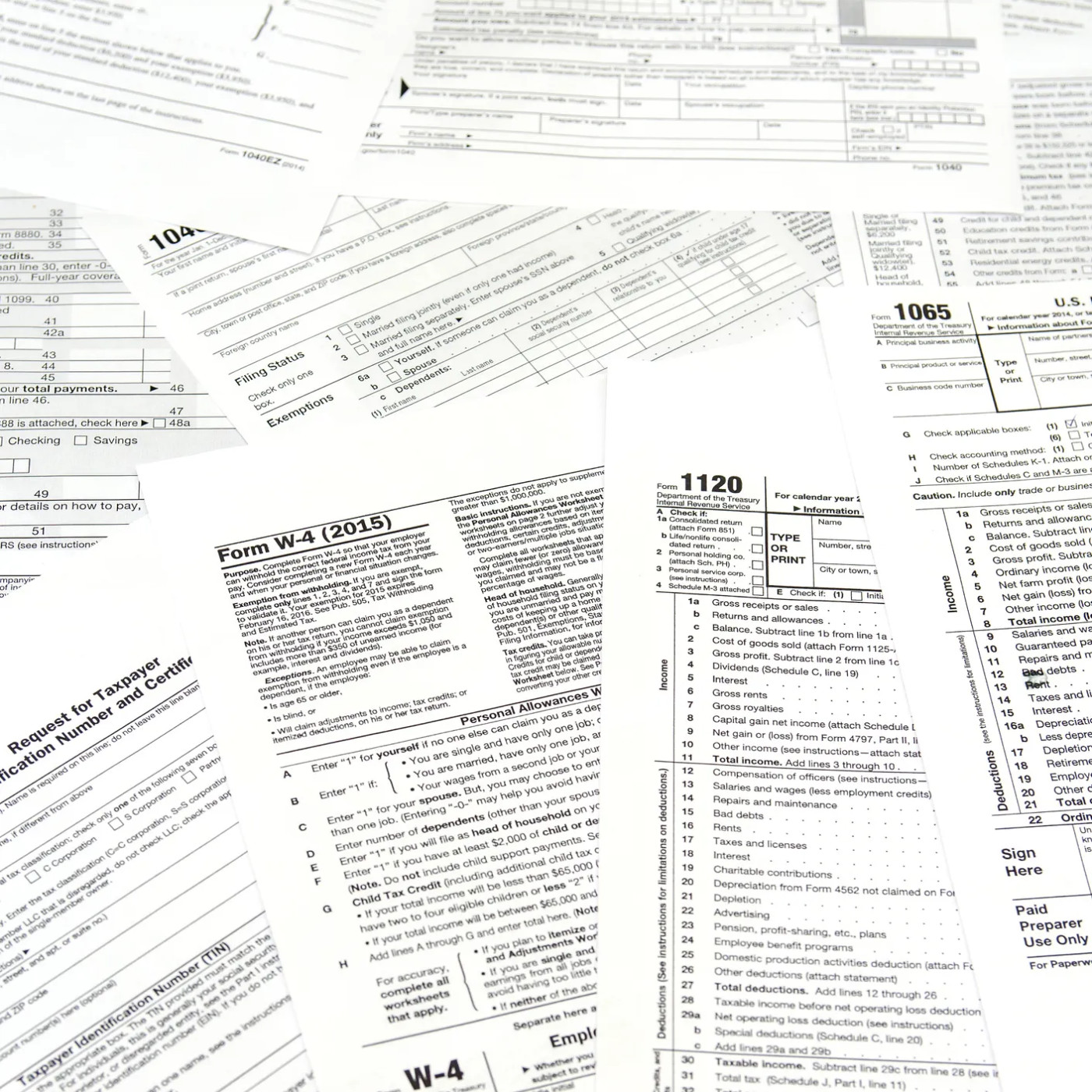
1099-K tax form new to you this year? What it means when filing for 2024
Did you just receive a form called a 1099-K, a form that you never, ever saw in your lifetime? Well, do not ignore any 1099-K that pops up. Take your time to understand this one.
More taxpayers will be bewildered when a 1099-K hits the mailbox this tax season. And the temptation might be to pitch it, which would be exactly the wrong thing to do.
This year, taxpayers will receive a 1099-K from payment card companies, payment apps and online marketplaces when the amount of their business transactions during 2024 was more than $5,000.
"How many people have sold something online? Or otherwise taken a payment through an online app, like PayPal or Venmo?" asked Andy Phillips, vice president of The Tax Institute at H&R Block.
Plenty of people. But most people didn't get a 1099-K in the past, Phillips said, because a "super high threshold" existed for issuing a 1099-K.
Find the loan that's right for you: Best personal loans
Under the old standard, the 1099-K was only sent to those who had received more than $20,000 and had more than 200 transactions on third-party payment processing platforms in 2023 and earlier years.
A lower threshold of $5,000 for 2024 means a bigger paper trail for the Internal Revenue Service to follow relating to taxable transactions.
This year, "a lot more people are going to get a 1099-K and not know what to do with it," Phillips said.
The threshold is currently set to drop again in 2025, which means you'd receive a 1099-K during next year's tax season if you have transactions for more than $2,500 this year.
Common examples for when people could be surprised by a 1099-K include selling concert tickets for substantially elevated prices, like those for the Taylor Swift Eras Tour, which ran through 2024.
Or maybe you sold football tickets online — such as Detroit Lions or Philadelphia Eagles tickets, another in-demand ticket — during the past season or the playoffs. You would have to have pushed above that $5,000 threshold in 2024 to receive a 1099-K for this tax season.
Resale platforms such as StubHub, Ticketmaster, Etsy, eBay and others all list information online about when they're sending out a 1099-K. But you'd want to know more about what's taxable and what's not.
The American Rescue Plan Act of 2021 revamped reporting requirements for third-party networks and initially was to trigger a 1099-K if you had more than $600 in transactions. We've not seen such a drastic change yet.

"The IRS has been delaying implementation," said Mark Luscombe, principal analyst for Wolters Kluwer Tax & Accounting in Riverwoods, Illinois.
The IRS is phasing in changes in the threshold, which, according to the IRS, would allow the agency to address the complex administrative challenges that will pop up once millions of additional 1099-K forms start being issued. The phase-in also gives taxpayers more time to adjust.
Right now, we're set to hit that $600 threshold — the limit that the law technically requires — in 2026 and afterward to cover transactions that are more than $600.
Luscombe said it's possible that Congress will change the law before the $600 threshold goes into place and raise the limit back up by some amount again to avoid an onslaught of 1099-Ks.
"People should start seeing 1099-Ks that they hadn't been used to getting in the past," Luscombe said.
What Trump says on 'no tax on tips'
Republicans have been critical of the efforts by the IRS to delay a flood 1099-K forms hitting mailboxes, and at the same time GOP leaders are calling for repealing the American Rescue Plan Act provision involving the expansion of 1099-K paperwork to more taxpayers.
Jason Smith, chairman of the U.S. House Ways and Means Committee, posted a statement in October titled: "Will the IRS save Democrats from implementation of their own unpopular 1099-K surveillance scheme?"
The statement noted that gig workers use apps like Venmo and PayPal to sell services and receive tips and indicated that lowering the threshold to $600 would trigger a massive burden on more middle income taxpayers.
The Missouri Republican said the burden will be the hardest on taxpayers earning less than $200,000 a year.
“In fact, it will operate like an additional tax on tips — making life harder for hairdressers, Uber drivers and other gig workers just trying to make a living," Smith stated.
"If even the IRS is afraid to implement this monster, then repealing it is just common sense," Smith said in October.
President Donald Trump on Jan. 25 said a legislative package he's working on with Republican lawmakers to enact his domestic agenda will include his campaign pledge to eliminate taxes on tips.
White House and Republican congressional leaders are discussing using the budget reconciliation process to pass some broader proposals, including the extension of Trump's Tax Cuts and Jobs Act of 2017, which is set to expire at the end of 2025, and initiating a no tax on tips rule.
Tax season 2025:Common problems can delay refunds
What's taxable and what's not
Granted, the IRS has noted, that all income, no matter the amount, is taxable unless it’s excluded by law whether a Form 1099-K is sent or not.
What taxpayers need to know, though, is that receiving the extra 1099-K paperwork does not mean you're always dealing with a taxable situation. Yes, it could get really tricky.
You pay taxes on a gain, not a loss. And the 1099-K only shows your gross receipts. The number you see on the 1099-K might not be fully taxable.
You'd pay taxes on the profit, so you'd need to take into account what you paid for an item that you sold online too, such as Detroit Lions or Taylor Swift tickets, as well.
"Always remember that the amount reported on a tax form is not necessarily the full amount that's taxable," Phillips said.
If you sold something online, Phillips said, you probably paid something for whatever you sold. Or he said if you provided a service, you probably have expenses related to providing that service.
If you sell a designer handbag for $200 and you paid $500 for it, you're not going to face a tax bill. You lost $300 on that deal.
On the other hand, the IRS notes, if you bought concert tickets for a $500 purchase price and sold them for $900 to someone else, you have a gain of $400. And the gain on a sale of a personal item is taxable.
A key point to know here: The loss on the sale of a personal item is not deductible. Don't expect a tax break there.
The IRS notes online that if you had a seasonal crafts business and accepted money through payment cards or payment apps, you'd receive a 1099-K "for the gross payment amounts sent to you through the use of a payment card during the calendar year, no matter how much the total."
"This reporting requirement for payment cards has not changed, and there is no minimum reporting threshold for these types of payment transactions," the IRS states.
If the 1099-K shows the sale of a personal item that was sold at a loss, you'd have to reconcile that on your tax return.
You'd enter those amounts that were included in error or involving personal items sold at a loss at the very top line on Schedule 1 for 2024 returns. This area is even above the section called "Part 1: Additional Income."
"The place at the top of Schedule 1 to enter incorrect 1099-K information is new," Luscombe said.
Tax season opens:Do you have to file taxes? Why you may want to even if you don't.
In addition, third-party networks might not necessarily know whether some transactions are personal transfers, such a money sent to a friend to split the cost of a meal, or taxable business deals, such as selling your football tickets online at a profit.
"You might get a 1099-K for a transaction that wasn't even taxable," Luscombe said.
One example of an amount included on a 1099-K in error, he suggested, might include a situation such as when a roommate reimburses you via a third-party payment provider for the rent you paid to a landlord if you covered the full cost.
It's important not just to toss that 1099-K aside and ignore it. "The IRS would have gotten that also and won't know it's not taxable unless you tell them," Luscombe said.
Contact personal finance columnist Susan Tompor: [email protected]. Follow her on X@tompor.

